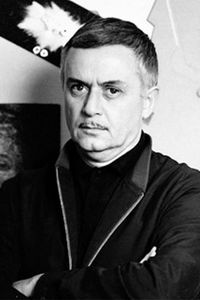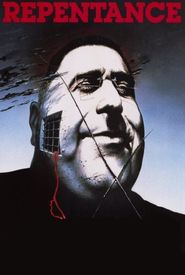Tengiz Abuladze, a celebrated and illustrious Georgian film director, screenwriter, theatre instructor, and distinguished People's Artist of the USSR, was born on January 31, 1924, marking the beginning of a remarkable life that would ultimately be cut short by his passing on March 6, 1994.
Abuladze's academic journey was characterized by his initial enrollment in the esteemed Shota Rustaveli Theatre Institute in Tbilisi, Georgia, where he pursued studies in theatre direction from 1943 to 1946. This formative period laid the groundwork for his future endeavors. Subsequently, he relocated to Moscow to attend the renowned VGIK (All-Union State Institute of Cinematography),a prestigious institution that has produced many notable filmmakers. Abuladze successfully completed his filmmaking studies at VGIK in 1952, thus acquiring the necessary skills and knowledge to embark on a successful career in the film industry. Following his graduation, he joined Gruziya-film (Georgia Film Studios) as a director, a position he held for many years, diligently dedicating himself to his craft and contributing to the growth of the film industry in Georgia.
Abuladze's cinematic journey began with Magdana's Donkey, a collaborative endeavor with Rezo Chkheidze, which garnered immense recognition at the 1956 Cannes Film Festival by claiming the esteemed "Best Fiction Short" award. Notwithstanding this early success, Abuladze's most enduring legacy lies in his trio of films: The Plea (The Supplication) (1968),The Wishing Tree (1977),and Repentance (1984, released 1987). This trilogy earned him the distinguished Lenin Prize in 1988, as well as the inaugural Nika Award for Best Picture.
Abuladze's ascent to prominence in the Soviet Union unfolded during the perestroika era, a pivotal period marked by the relaxation of censorship laws, which had previously stifled the release of his groundbreaking film Repentance. This long-suppressed masterpiece, a searing critique of the Stalinist terror, finally saw the light of day in 1986, sending shockwaves throughout the cinematic community.
Repentance, a powerful and thought-provoking film, masterfully weaves a narrative around the death of an old tyrant, Varlam Aravidze, whose passing serves as a catalyst for a chain of events that explores the complexities of human nature. At the center of the film is the enigmatic Ketevan Barateli, a woman whose refusal to abandon the corpse of Aravidze sparks a series of dramatic confrontations.
Throughout the film, Abuladze employs a metaphorical framework to link Aravidze to a host of notable historical figures, including Adolf Hitler, Benito Mussolini, and Joseph Stalin. The latter, in particular, is the subject of intense scrutiny, with Abuladze focusing on the life and legacy of Lavrentiy Beria, Stalin's fellow Georgian and a key figure in the Soviet regime.
As the film unfolds, Abuladze's masterful storytelling and nuanced characterizations work in tandem to create a cinematic experience that is both a powerful indictment of the Stalinist era and a poignant exploration of the human condition.
Abuladze's cinematic endeavors frequently delved into the realm of complex and sensitive subjects, thereby garnering him a reputation as a fearless and trailblazing filmmaker. His unrelenting passion for his craft, coupled with his unwavering dedication to the art of storytelling, has resulted in a lasting and profound impact on the world of cinema, thereby solidifying his position as one of the most influential and iconic Soviet directors in the history of the medium.
















